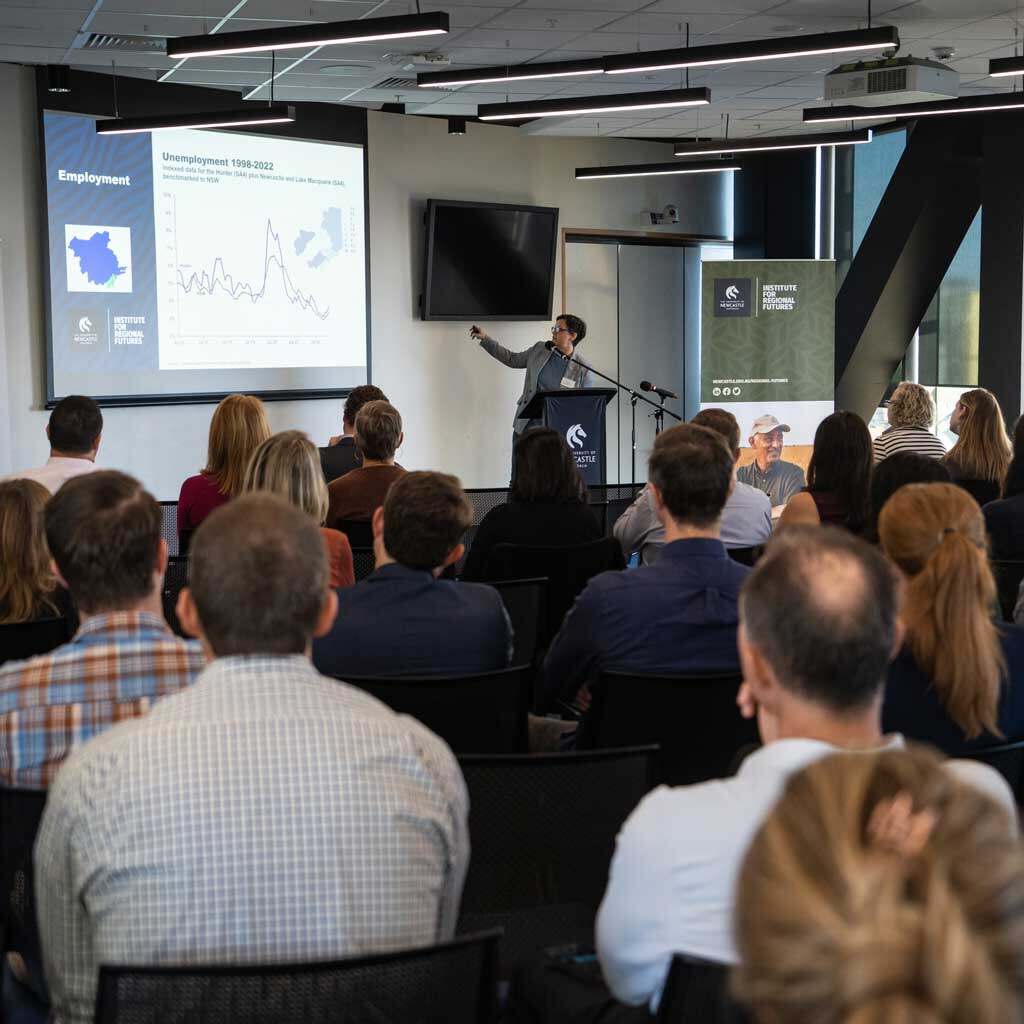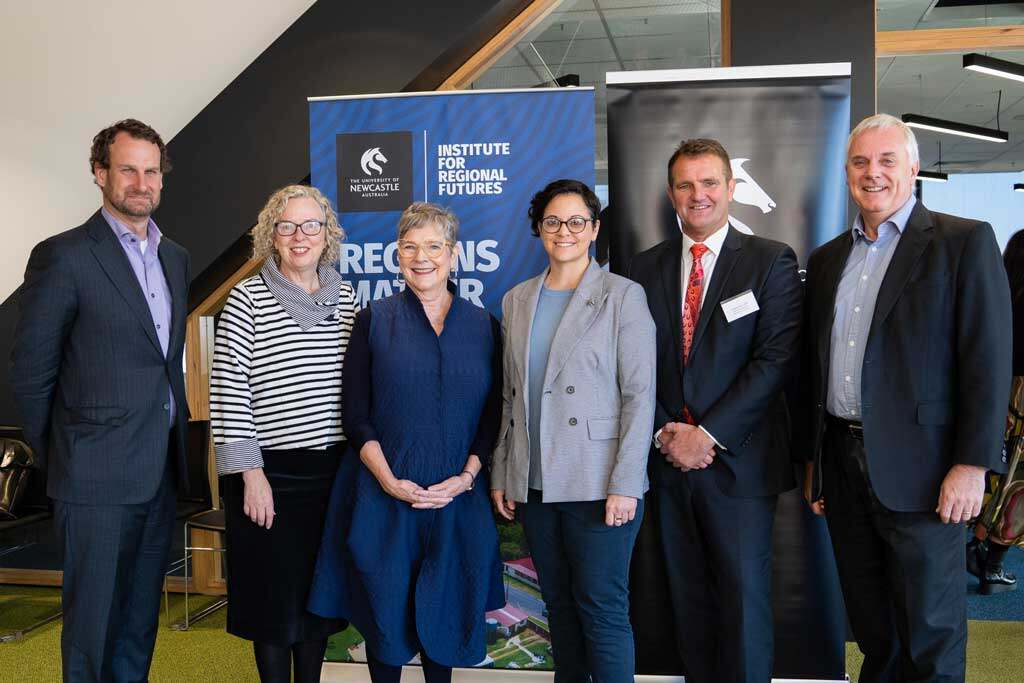For the first time, knowledge-producing jobs in Newcastle and Lake Macquarie, such as those in the professional and information services, outnumber goods generating jobs, like manufacturing and mining.


Speaking at Hunter Insight: The Geography of Jobs, Director of the University of Newcastle’s Institute for Regional Futures, Professor Roberta Ryan, said the Hunter’s changing employment profile highlighted an urgent need to focus planning and investment towards building cross-sector human capital.
“The shift from manufacturing to mining after BHP’s departure pulled the Hunter out of a short unemployment slump,” Professor Ryan said. “We are now looking for the next wave of opportunities as the resources sector transitions and evolves.
“Health, defence and energy are traditional strengths that pose many new opportunities for growth in the region. However, developing the workforce within silos in these sectors will not deliver the number nor types of jobs required in the long term.”
The Hunter’s current workforce is built on the region’s long-standing strengths in three value-adding sectors: resources, manufacturing and ‘knowledge hubs’ including medicine, defence and technical service innovation. These are complemented by a strong services workforce.


A growing body of international research demonstrates that regions where the same workers can be employed across different sectors are well equipped for social and economic transition.
Professor Ryan said decision-makers across government and industry needed to move beyond sector-based thinking in the development of the Hunter’s workforce.
“Historically, the approach to regional development and planning has been framed by developing sector-specialisations based around physical resources or assets.
“In an environment where new opportunities emerge quickly and existing markets can decline with little warning, the region needs to prioritise building a workforce with transferable skills across sectors and developing human capital that is nimble, adaptable and resilient to change.”
Professor Ryan suggests that a way forward for the Hunter is to lead in the establishment of an agreed framework of policy responses to building human capital that is designed to meet the particular needs of different parts of the region.
“The Hunter is unique: it is not a capital city, but nor is it like any other region in Australia. This has made us a magnet to test new ideas,” Professor Ryan said.
“We have the opportunity for the region to be a test bed for innovation that puts the development of human capital firmly in the driver’s seat to develop a new economy.”
The Hunter Insight Series: The Geography of Jobs draws on the Hunter Research Foundation Centre’s wealth of data and latest research insights from the Institute for Regional Futures. More information about the Institute for Regional Futures is available at https://www.newcastle.edu.au/research/centre/regional-futures







































